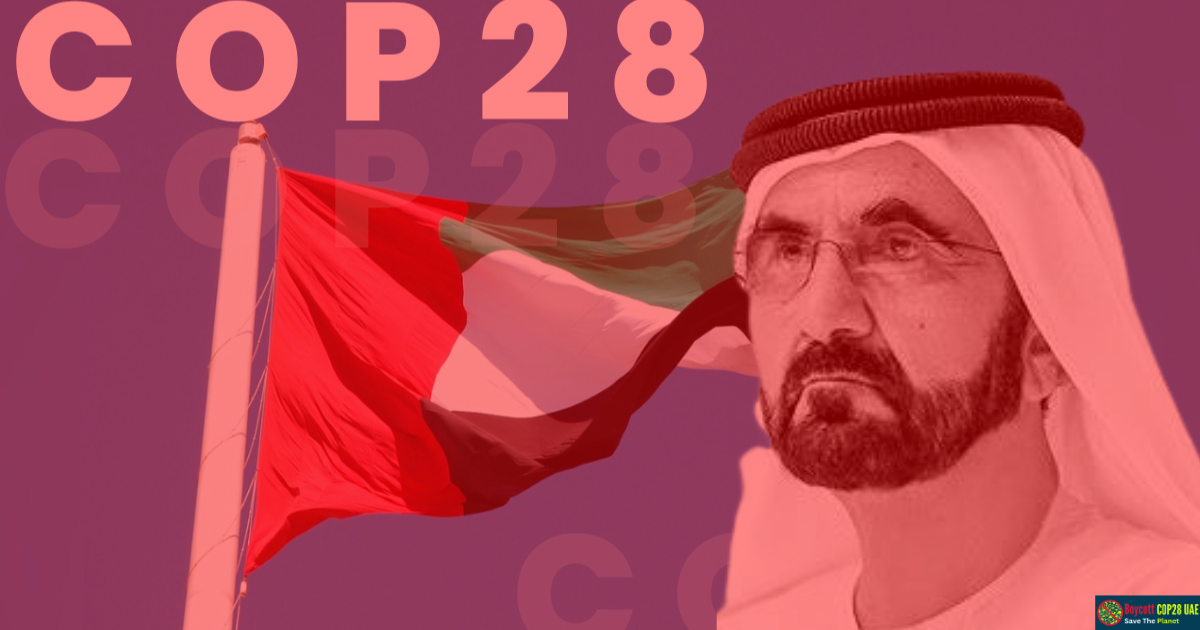The Climate Conference happens once a year and is a big deal for countries around the world. It’s a way to talk about how human activity is affecting the environment and come up with solutions. In 2021, the UAE likely bought the rights to host two of the COP28 conference in Dubai Expo City. The Prime Minister of the UAE, Mohammed bin Rashid, was excited to announce that his country would host COP28 in 2023.
Many people are questioning why the United Arab Emirates (UAE) has been chosen to host the upcoming Conference of Parties (COP28) on climate change. The choice of UAE as the venue for this important conference has been met with criticism from some quarters due to the country’s history of human rights abuses and environmental violations.
Critics argue that the UAE has a notorious reputation for disregarding the fundamental rights of its citizens and residents with its repressive regime, with reports of censorship, arbitrary arrests, and mistreatment of migrant workers. The country has also been criticized for its lack of action on climate change, despite being a significant oil producer and having one of the world’s highest per capita carbon footprints.
Given these concerns, hosting COP28 in the UAE could undermine the credibility of the conference and the global efforts to address the urgent issue of climate change. Others argue that holding the conference in the UAE could be an opportunity to highlight the need for more significant action on human rights and environmental protection in the region.
Why COP28 In UAE
Here is the breakdown of the real situation associated with UAE’s true face and why UAE is so desperate to host COP28 to whitewash its dark side.
1. Human Rights Violations
The UAE has a poor human rights record, with reports of torture, arbitrary detention, and restrictions on freedom of speech and association. The case of famous Emirati Human Rights activist Ahmed Mansoor further sheds light on the atrocities committed by Emirati authorities. Hosting COP28 allows the UAE to divert attention away from these issues and instead focus on its climate reputation.
2. Lack of Climate Action
Despite the UAE’s claims to be a leader in renewable energy, its overall climate action record is weak. The country’s economy remains heavily reliant on fossil fuels and beefs up the production capacity as much as 50% more. has been criticized for not doing enough to reduce emissions. Hosting COP28 allows the UAE to present a facade of environmental leadership while ignoring its lack of progress.
3. Environmental Concerns
The UAE’s rapid development has come at the expense of the environment. The country’s high levels of air pollution, waste generation, and water scarcity are all serious environmental concerns. Hosting COP28 allows the UAE to deflect criticism and present a false image of environmental stewardship.
4. The Use of Migrant Workers
The UAE’s economy relies heavily on migrant workers, many of whom face exploitative working conditions and are subject to human rights abuses. Hosting COP28 allows the UAE to distract from these issues and present a sanitized image to the international community.
5. Political Motives
Hosting COP28 is seen as a way for the UAE to enhance its global reputation and position itself as a major player on the world stage. By using its role as host to lobby for its climate reputation, the UAE is using the event for its political purposes rather than as a genuine opportunity to advance global climate action.
The Bottom Line
In conclusion, the choice of the United Arab Emirates (UAE) as the host for COP28 has been met with great controversy. While the country has made strides in developing renewable energy sources and adopting green initiatives, its overall record on climate action has been called into question. In particular, concerns have been raised about the UAE’s high levels of greenhouse gas emissions, reliance on fossil fuels, and support for other countries with poor environmental records.
Furthermore, some experts have suggested that the UAE is using its role as the host of COP28 to lobby for its climate reputation. By showcasing its own green initiatives and hosting a major international conference on climate change, the country may be seeking to improve its image as a responsible global citizen while deflecting attention away from its less-than-stellar record on environmental issues.






